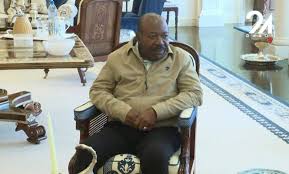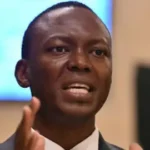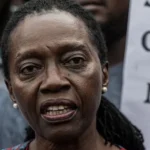In a dramatic turn of events, Ali Bongo Ondimba, the ousted president of Gabon, along with his family, was officially released from detention after nearly two years, prompting speculation and international attention. The former leader, who was deposed in a military coup in January 2021, was seen leaving Gabon for Angola, marking a significant development in the country’s political landscape.
Background: The Fall of Ali Bongo
Ali Bongo Ondimba, who served as Gabon’s president since 2009, was toppled amid widespread protests and military intervention following disputed elections. The military claimed that the election results were marred by irregularities, alleging that Bongo and his family misappropriated state resources. After the coup, Bongo and several family members were placed under detention, with authorities citing concerns over national stability and corruption.
Detention and International Response
For over two years, Bongo’s family remained in detention, with human rights groups raising concerns about due process and treatment. The Gabonese military government maintained that the detention was necessary to investigate allegations of corruption and abuse of power. Meanwhile, international observers called for transparency and urged the authorities to respect legal procedures.
The Unexpected Release
In a surprising development, official sources confirmed that Ali Bongo and his family members were released from detention in early October 2023. The authorities cited reasons of reconciliation and national unity, emphasizing their commitment to peace and stability. The release was also viewed as a gesture to improve diplomatic relations and foster a more inclusive political environment.
Journey to Angola
Shortly after their release, reports indicated that Bongo and his family boarded a flight to Angola, a neighboring country with close ties to Gabon. Angola’s president, João Lourenço, has historically maintained friendly relations with Gabon and has been involved in regional diplomatic efforts. Experts suggest that Bongo’s move to Angola may serve multiple purposes: seeking asylum, political refuge, or simply a strategic retreat to regroup.
Why Angola?
Angola’s role as a regional power broker and its history of providing asylum to political figures in exile make it a logical destination. Moreover, Angola’s stable political environment and its leadership’s diplomatic ties to Gabon create a relatively secure haven for Bongo and his family. It is also possible that Bongo intends to leverage Angola’s influence to negotiate a political comeback or to rebuild his political stature.
Implications for Gabon and the Region
The flight of Bongo and his family to Angola signals a potential shift in Gabon’s political dynamics. It raises questions about the future governance of Gabon, reconciliation efforts, and the possibility of Bongo’s return to politics. Additionally, the move underscores regional stability concerns, as political exiles and unresolved disputes can impact neighboring countries.
Legal and Political Uncertainty
While the release and departure are notable, many legal questions remain unanswered. Critics argue that the detention may have violated human rights and due process, and some call for accountability regarding the allegations of corruption. The Gabonese government has stated that investigations are ongoing, but the focus now appears to be on stabilizing the nation and fostering dialogue.
Conclusion
The release of Gabon’s former president and his subsequent flight to Angola mark a pivotal moment in the country’s recent history. Whether this development will herald a new era of reconciliation or further political instability remains to be seen. As Bongo and his family settle into their new environment, regional and international actors will closely monitor the situation, hopeful for a peaceful resolution and continued stability in Central Africa.
Email Us on editorial@nnafrica.com













